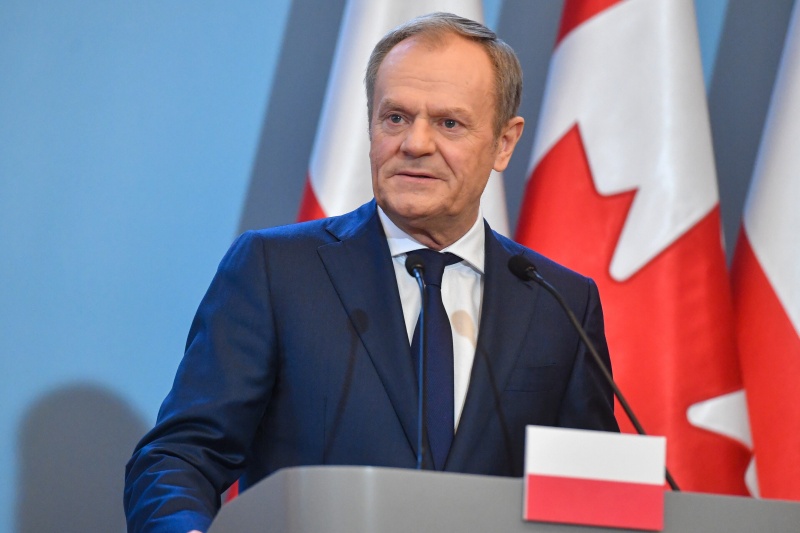On Tuesday, Prime Minister Donald Tusk will go to Prague, where he will meet with the leaders of the remaining Visegrad Group (V4) countries: the Czech Republic, Hungary and Slovakia. The summit in the Czech capital is to be devoted to migration and energy issues. "I will come back from Prague and tell you whether the Visegrad Group still makes sense or not. This meeting will explain a lot," said PM Tusk.

Polish Prime Minister Donald Tusk. Photo by Piotr Nowak/PAP
The summit in Prague will be attended by the prime ministers of the four countries forming the V4: Czech Prime Minister Petr Fiala, Slovak Prime Minister Robert Fico, Hungarian Prime Minister Viktor Orban and Prime Minister Donald Tusk.
PM Donald Tusk: I will say this to Viktor Orban's face
The Visegrad Four summit, typically held at a high level, has been postponed for several months due to ongoing elections in Poland and Slovakia. The last time the prime ministers of the Visegrad Group met was in June last year in the capital of Slovakia: Bratislava. Despite this delay, the recent meeting of the Visegrad Four leaders has sparked controversy amid calls to cancel it, following a speech by Slovakia's Robert Fico that has been widely interpreted as sympathetic to Russian interests.
"I'm going to Prague tomorrow precisely to check whether the Visegrad Group is a format that can effectively support all sensible activities in the European Union. This was quite an effective format within the EU. We achieved a lot when we were all strong supporters of strengthening the power of the West and we were democrats", Donald Tusk said. "I regret one thing, which I'll address tomorrow in Prague. Objectively speaking, Poles, Slovaks, Hungarians, and Czechs share nearly identical interests, especially in matters of security. It's paradoxical that ambiguous signals are emerging from Budapest and Bratislava regarding Putin and Russia", emphasized the Polish Prime Minister.
The Polish chief drew attention to the fact that the Visegrad Group countries 'had identical experiences with the Soviet Union' - their tanks were in Budapest, Warsaw, and Prague, then Czechoslovakia. I see no reason why today the countries of this region cannot, as before, be very united in resistance and support of those who are fighting a regime that does not respect any of our common values," highlighted Prime Minister Donald Tusk.
At the Visegrad Group meeting, I will say this to Viktor Orban's face: 'There can be no room in NATO and the EU for any doubts when it comes to the Russian-Ukrainian war,' announced the head of the Polish government, Donald Tusk, on Monday. 'If someone is a member of NATO and the EU, by definition, they must support Ukraine. Anyone who doesn't understand this is de facto putting themselves outside our communities. There can be no compromises here, no ambiguity. The Western world must show solidarity. I hope that step by step, our partners in the region will understand that there is no alternative' - he added.
The Visegrad Group (V4)
The Visegrad Group, also known as the Visegrad Four (V4), is a coalition of Central European nations comprising Czechia, Hungary, Poland, and Slovakia. Formed in 1991, its initial aim was the collective integration of its members into Euro-Atlantic organizations. Today, its primary function is to synchronize policies within the European Union. The rotating presidency of the V4 is regularly passed between the individual states. The only fixed institution of the V4 is the International Visegrad Fund based in Bratislava. Currently, the Czech Republic holds the presidency of the Visegrad Group (V4). On July 1, 2024, Poland will take over the V4 presidency.
